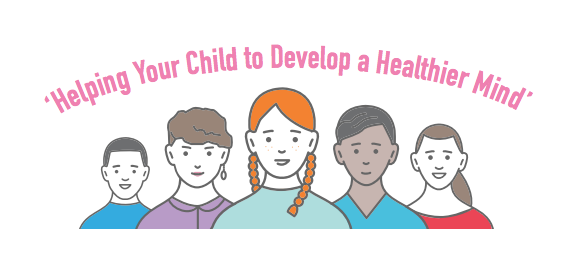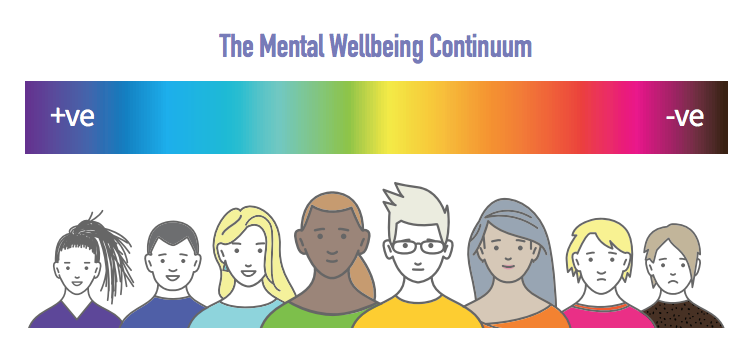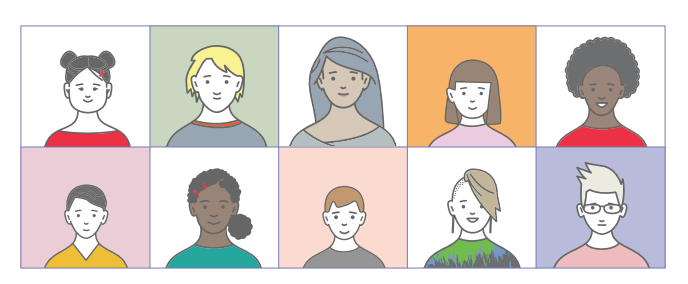Children and young people with additional support needs: their mental wellbeing and the wellbeing continuum

Children and young people cope with the ups and downs of life with the support of those closest to them E.g. from their parents, family members, friends, a key adult or school staff. They often learn coping strategies along the way that help them to manage difficult times in the future. However, for children and young people with additional support needs, the world can be a more difficult place to navigate
- They may find it difficult to make friends and be more isolated
- They may find it difficult or be unable to communicate their needs verbally or to make sense of what they are feeling
- They may have learning needs which make it difficult for them to manage change or different environments,
- They may find it difficult to work out coping strategies and to use these skills for times when they are coping
- They may have other health needs
- Because of learning and health needs, they may lack the opportunity to take control over their environment
- They may have sensory needs which make it hard for them to tolerate new environments or noises, or which means they need to move around more when they are distressed or disengaged
- They may demonstrate behaviours which indicate their distress or upset, but which others around them find it hard to interpret

There will be times when children and young people with additional support needs may require further support for their wellbeing. These may relate to their development, or their health, or because of the impact of adverse childhood experiences such as bereavement, loss, neglect or abuse. Children and young people who have experienced or are experiencing traumatic events are also more likely to need support for their mental wellbeing. This is true during the covid pandemic when children and young people with additional support needs may struggle to make sense of what is happening and to cope with the continual change and uncertainty, and the lack of access to supports and activities that they previously enjoyed. It is important to think of mental wellbeing as a continuum that ranges from feeling happy and content to experiencing chronic and enduring mental health difficulties that can be very debilitating. How adults and agencies respond and the support that is needed depends on where children and young people are on this continuum. For children and young people with additional support needs, knowing where the child is on the continuum requires a more in-depth knowledge of the child, and for key adults to know how they communicate their likes and dislikes. They can then spot changes in their behaviours and mood which may indicate that the child or young person is struggling. 
Questions to ask yourself:
If you are concerned about a child or young person, ask yourself the following questions about their usual behaviours and skills. This will then help to identify how things have changed, and what may help…
What is ‘usual’ for this chid or young person?
How do they interact with those around them?
Has this changed? How do they communicate that they don’t like something or don’t want to do it?
How do they communicate that they are happy or relaxed?
Do they use non-verbal signs or gestures to communicate this?
What tasks and activities do they enjoy doing?
What is their usual posture or skin tone?
Are there any physical needs or medical changes which may have had an impact?

